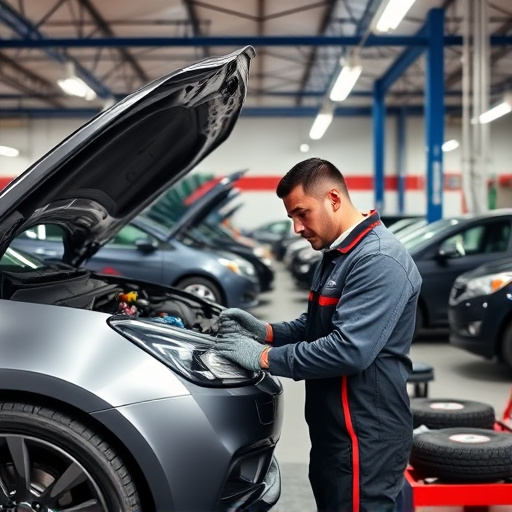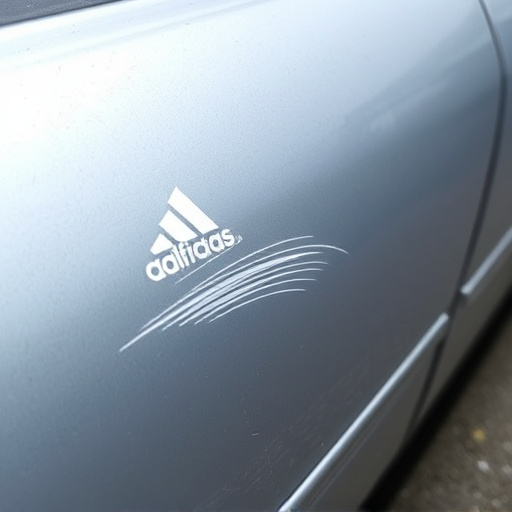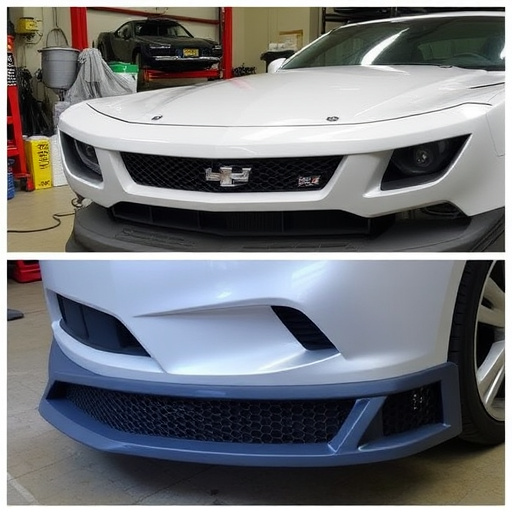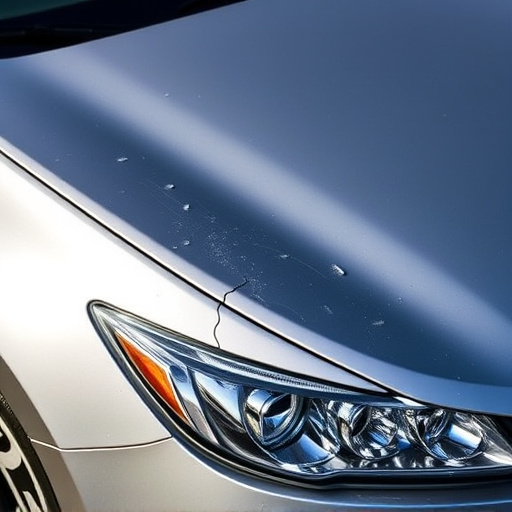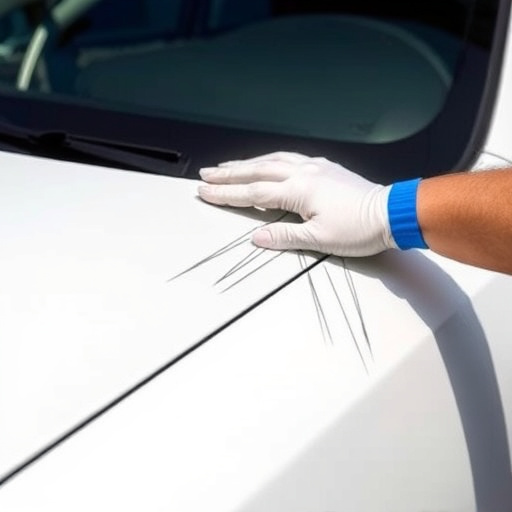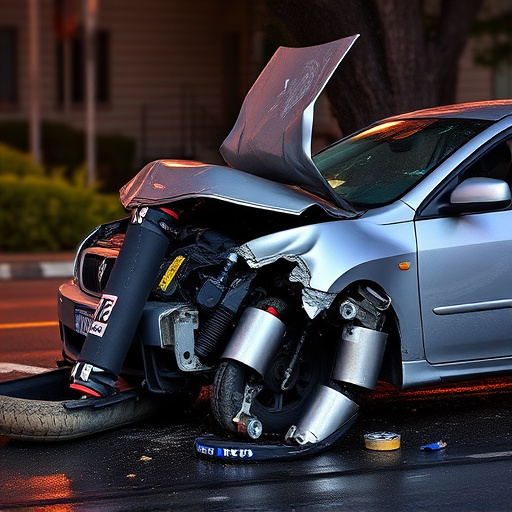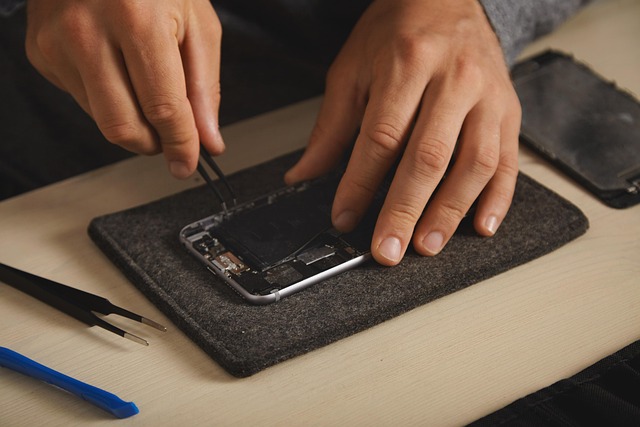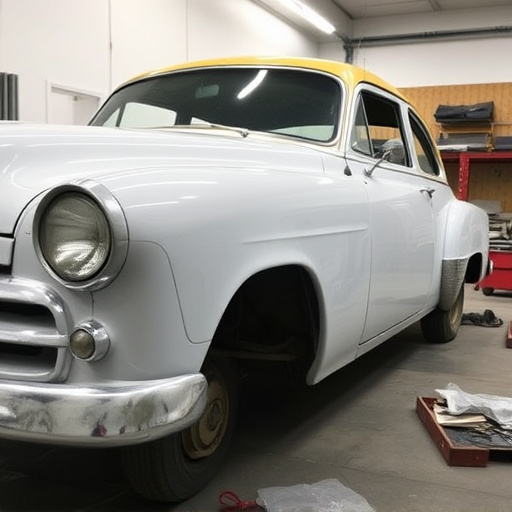The rise of electric vehicles (EVs) presents unique challenges for body repair due to sensitive components, advanced materials, and safety concerns. Specialized tools, techniques, and training are required for efficient and precise EV repairs, with fleet services playing a growing role. Mercedes Benz exemplifies advanced EV repair methods, leading to faster, cost-effective solutions while prioritizing quality and safety. The automotive industry's transition to EVs drives the need for green initiatives in car body repair shops, minimizing environmental impact and aligning with consumer demands for sustainability.
In the evolving landscape of automotive industry, electric cars are revolutionizing transportation. However, their unique construction presents distinct challenges for body repair, underscoring the crucial need for specialized services. This article explores the intricate world of electric car body repair, delving into the specific issues these vehicles pose and highlighting advanced techniques that ensure efficient repairs. We also discuss environmental impacts, emphasizing sustainable practices vital to the industry’s future.
- The Unique Challenges of Electric Car Body Repair
- Advanced Techniques for Efficient Repairs
- Environmental Impact and Sustainable Practices
The Unique Challenges of Electric Car Body Repair

The unique challenges posed by electric cars necessitate a specialized approach to body repair. Unlike conventional vehicles, electric cars have sensitive components integrated into their bodies, such as battery packs and high-voltage systems. These intricate systems require meticulous handling during any repair process. A minor misstep in traditional car dent removal or car dent repair can cause significant damage to these vital components, leading to costly replacements and safety hazards.
Moreover, the materials used in electric car construction differ from those of conventional vehicles. Advanced composites and lightweight metals are prevalent, which present distinct challenges for body repairs. Repairing a damaged panel or replacing a bent frame on an electric vehicle requires specialized tools, techniques, and training. Fleet repair services that cater to this niche are increasingly important as the adoption of electric vehicles accelerates, ensuring that these unique challenges are met with precision and efficiency.
Advanced Techniques for Efficient Repairs
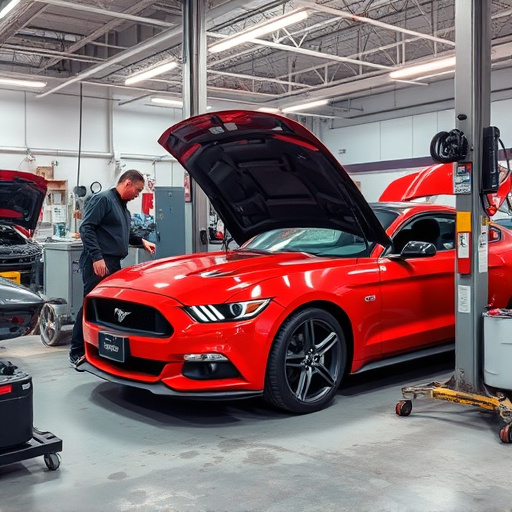
The evolution of electric car technology has brought about unique challenges and opportunities for body repair professionals. Advanced techniques are now essential to efficiently restore vehicle bodywork, ensuring seamless integration with the sophisticated electrical systems found in modern electric cars. These innovative methods involve specialized tools and training to handle delicate components like battery packs and high-voltage wiring, which require meticulous precision during repairs.
One notable example is Mercedes Benz collision repair, where certified technicians employ state-of-the-art equipment to precisely realign panels and replace parts while maintaining the vehicle’s structural integrity. Fleet repair services also benefit from these advancements, allowing for faster turnaround times and cost-effective solutions without compromising quality. This focus on advanced techniques not only enhances the overall efficiency of electric car body repair but also guarantees the safety and reliability of these eco-friendly vehicles.
Environmental Impact and Sustainable Practices
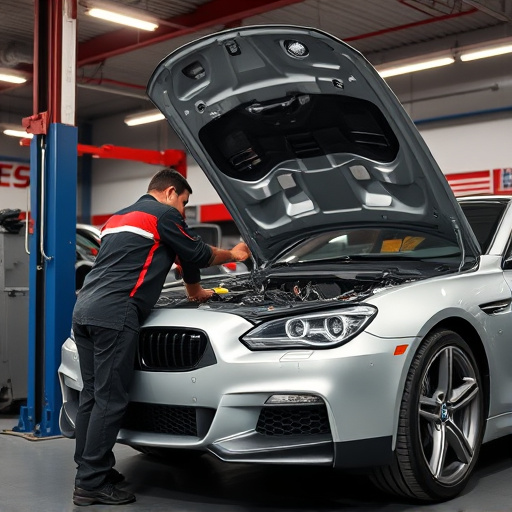
The automotive industry is undergoing a significant transition with the rise of electric vehicles (EVs). As more and more drivers make the switch to EVs, so too does the need for specialized services like electric car body repair. This shift isn’t just about technology; it has profound implications for the environment. Traditional vehicle manufacturing and repair often involve materials and processes that leave a substantial carbon footprint. In contrast, sustainable practices in electric car body repair focus on minimizing waste, using eco-friendly materials, and implementing energy-efficient techniques.
By adopting these green initiatives, auto repair shops can contribute to a more sustainable future for the industry. Electric car body repair experts play a vital role in ensuring that vehicles are not only restored to their pre-accident condition but also done so with an emphasis on environmental responsibility. This approach aligns with the growing demand from consumers who prioritize both style and sustainability, making eco-conscious car restoration a key aspect of the modern automotive landscape.
Electric car body repair is not just a technical challenge but also a critical pivot point for the automotive industry’s transition towards sustainability. As electric vehicles gain popularity, the need for efficient and environmentally-conscious body repair techniques becomes increasingly vital. By adopting advanced methods that minimize waste and energy consumption, the industry can ensure that the growing number of electric cars on the road remain in top condition while preserving resources for future generations. Investing in these practices is crucial for not only maintaining the integrity of electric vehicles but also shaping a greener automotive landscape.



